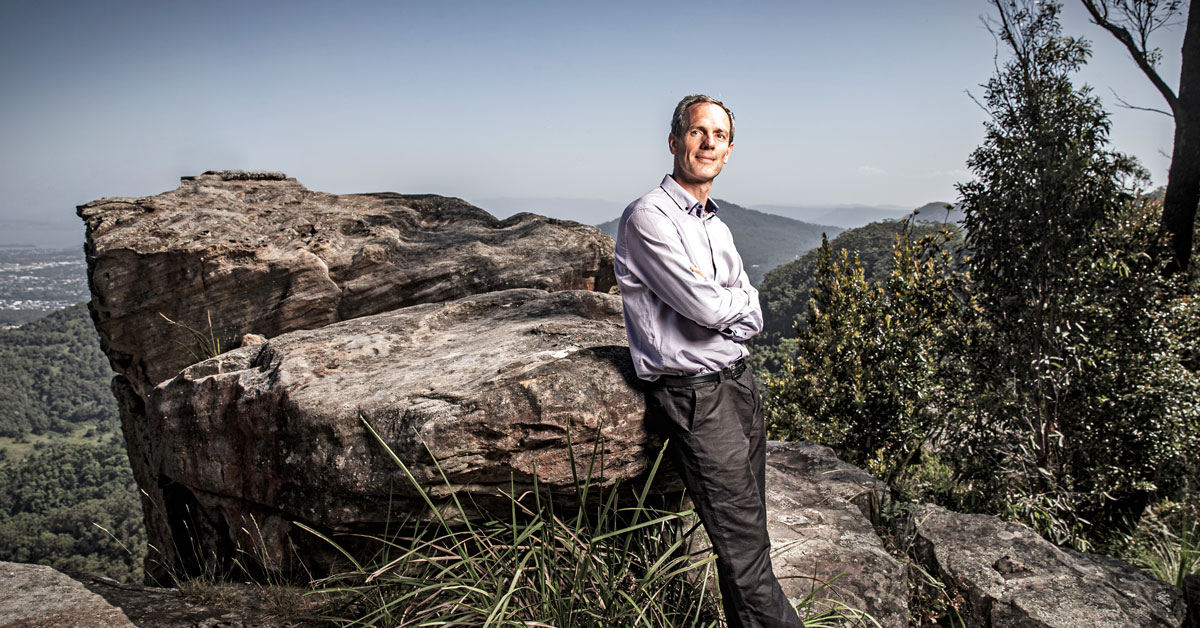
Dr Nicolas Flament’s research allows us to not only peer under Earth’s crust but to uncover what the planet’s interior looked like hundreds of millions of years ago.
Based at the University of Wollongong, Dr Flament was the recipient of the 2021 Anton Hales Medal from the Australian Academy of Science. He uses supercomputers at Australia’s National Computational Infrastructure to model the movement of tectonic plates and underlying mantle, connecting the evolution of the deep Earth with the evolution of its surface.
By identifying areas that may have been affected by mantle plumes, his models can predict where there may be deposits of important minerals and metals.
“I’ve been concentrating more on the deep Earth recently, specifically on how structures in the deep Earth move and create mantle plumes,” Dr Flament said.
Mantle plumes are hot rock columns that rise from Earth’s mantle to the surface, creating giant volcanoes and eruptions.
“These volcanoes are of interest to geologists because they can concentrate some metals and critical minerals—such as nickel, copper and rare-earth elements—that are essential now as the world is trying to transition to a low-carbon economy,” Dr Flament said.
For example, copper is crucial for most electrical technologies, and forecasts predict that to keep up with demand we will need to extract as much copper from the ground in the next 25 years as has been extracted to date.
Dr Flament’s work can help us find a more sustainable and efficient approach to finding these deposits, while also unlocking Earth’s history and its geological milestones.
“I’m fascinated and super excited about the processes and what we learn about the history of Earth … It’s not using my work that will help [mining companies] find a deposit, but it might help them understand processes that might help them find a deposit. What we’re doing together is learning about Earth, its processes, and Earth’s deep interior over time.”
Dr Flament won the Anton Hales Medal for early-career researchers in the Earth sciences in 2021.
“Receiving the Anton Hales Medal is a major recognition of one’s career achievements so far and can help secure grants and promotions and reflects positively on the institution where the scientist is based,” Dr Flament said.
He recommends that anyone eligible should nominate, to elevate the important work Earth scientists do.
If you are an early-career researcher with outstanding contributions to the Earth sciences, residing and conducting research mainly in Australia, consider nominating for the Anton Hales Medal. This prestigious award is named after the late Professor Anton Hales, who founded the Research School of Earth Sciences at the Australian National University.
© 2026 Australian Academy of Science